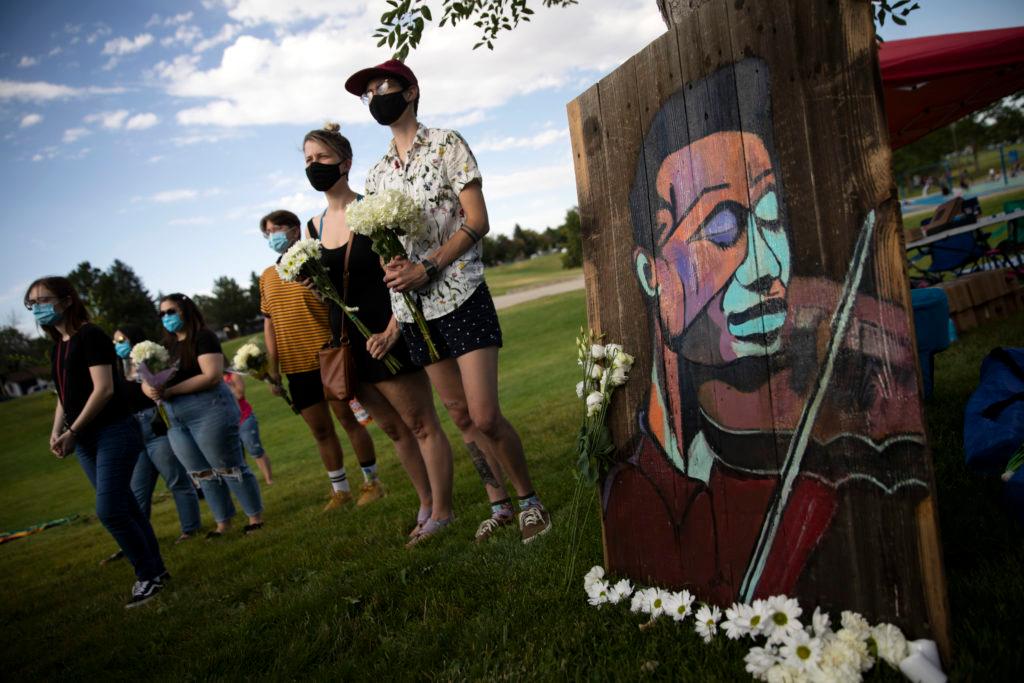
2023
Oct. 9 — Prosecutors are expected to make a final argument on Oct. 10 that Aurora police officers Randy Roedema and Jason Rosenblatt are responsible for the death of 23-year-old Elijah McClain because, in detaining him, they repeatedly ignored cries that he couldn’t breathe and recklessly disregarded physical signs of a struggle that turned lethal for the unarmed Black man four years ago.
Defense attorneys will likely point to a murky autopsy finding that McClain died of “complications of ketamine” after forcible restraint, and say no evidence exists beyond a reasonable doubt that Roedema or Rosenblatt were criminally negligent or responsible for the man’s death — particularly since they did not administer the ketamine.
Then, it’s in the hands of 12 Adams County jurors.
This group, which doesn’t include a Black person, will make a decision about whether to convict the two officers in the first of three trials connected to McClain’s death.
Manslaughter carries a two- to six-year prison sentence and second-degree assault carries a five- to 16-year sentence.
Oct. 7 — Defense attorneys for two Aurora Police officers charged in the death of Elijah McClain called no witnesses and put on no case, arguing that the state had simply failed to prove their clients acted criminally in the case.
The state's final witness, an outside expert who reviewed McClain's autopsy and concluded he died of homicide, was on the stand for just an hour. That was followed by a protracted hearing on legal matters, and a motion by the defense attorneys for the judge to find their clients not guilty without need for the jury. That was denied.
They are each charged with criminally negligent homicide, manslaughter and assault.
Oct. 5 — A chief medical examiner and national expert on forensic pathology said Thursday that Elijah McClain’s manner of death is homicide.
Both Mitchell and Dr. Stephen Cina, the Adams County contracted pathologist who performed McClain’s autopsy, agreed that the cause of McClain's death was “death by ketamine after forcible restraint.”
“I agree with Dr. Cena 100 percent in his cause of death,” Mitchell said.
But where Cina stopped short of determining the manner of death, Mitchell did not equivocate on Thursday. He was asked directly by a prosecution attorney what the proper classification of the manner of death of Elijah McClain’s death would be.
“Homicide,” Mitchell said.
Oct. 3 — After watching hours of body worn camera footage and consulting with medical experts, Aurora police officers and reviewing pages of medical records, Adams County forensic pathologist Dr. Stephen Cina still can’t make up his mind.
Cina told jurors that Elijah McClain inhaled and choked on vomit, likely both on the ground when he was struggling with officers and wearing a mask and also in the ambulance when he was lying prone on a gurney after receiving a dose of ketamine.
Cina also told the jurors that “more likely than not” McClain, 23, would have recovered “if not for the ketamine.”
Both prosecutors and defense attorneys, at times, seemed slightly frustrated and flummoxed by Cina’s clear lack of decision on why exactly McClain died.
Sept. 29 — A former police officer and use of force expert said that former Aurora officer Jason Rosenblatt and officer Randy Roedema didn’t properly treat Elijah McClain in his forcible detention that led to his death in August 2019.
Marc Brown, who is an instructor at the Federal Law Enforcement Training Center, viewed the body camera footage and told jurors that Roedema and Rosenblatt made a series of mistakes in handling McClain that night — both before and after McClain received two carotid holds.
Brown also said neither Roedema nor Rosenblatt followed their own Aurora Police Department training that requires officers to pay attention to suspects’ physical conditions.
Defense attorneys also said that paramedics and firefighters were on the scene and apparently not rushing to help — a sign that no one realized or correctly diagnosed the physical distress McClain was experiencing at the time.
Sept. 28 — The sergeant in charge of the training academy at the Aurora Police Department spent a large part of his testimony talking about what Aurora officers are required to know and do, especially in dealing with suspects.
Aurora Police Sgt. Kevin Smyth testified on various protocols that officers are taught in dealing with suspects including those in respiratory distress and how to apply the carotid hold. The prosecution walked Smyth through PowerPoint slides that were used in the curriculum at the time. Both Randy Roedema and Jason Rosenblatt, who are on trial and charged in Elijah McClain’s death, were at the academy in 2017.
In effect, the prosecution was showing the jury the things that the officers are trained to do in situations where people struggle or when they say they can’t breathe, drawing lines to what was done — or not — that night in the forcible arrest of McClain and whether the two officers were following protocol.
Carotid hold restricts the blood flow of the brain causing a person to lose consciousness. That hold is now prohibited across Colorado after the state legislature passed a police reform bill in the wake of the racial justice and police brutality protests in the summer of 2020.
Sept. 27 — Before the court was in session, the defense lodged complaints with Judge Mark Warner over receiving supplementary reports following the testimony of the previous day's expert witnesses — information considered a late disclosure. The prosecution failed to share reports of Tuesday’s testimonies of NMS Labs expert Robert Hessler and former Aurora Police Lt. Robert Wesner.
One of the reports at issue was about how much ketamine should’ve been administered to Elijah McClain based on weight. The defense said they would have cross-examined witnesses Hessler, Wesner and Dr. David Beuther differently had they received the reports on time.
Senior Assistant Attorney General Jason Slothouber admitted that those reports weren’t sent to the defense in a timely manner. The reports were sent out at 5 p.m. Sept. 26.
Sept. 26 — Day four of the trial of the two Aurora officers charged in the death of Elijah McClain revealed more details about what occurred the night of Aug. 24, 2019.
People on the stand Tuesday included the owner of the convenience store where McClain was seen on surveillance video buying iced tea, the call taker for Aurora that first entered the 911 call as a “suspicious person” in the system, and the dispatcher who called for a one-officer car and backup to the intersection where McClain was seen in a coat and ski mask, waving his arms.
Sept. 22 — Dr. David Beuther, a pulmonary critical care physician at National Jewish Health, testified in court that Elijah McClain had inhaled a potentially fatal amount of fluid from vomit during his arrest.
Beuther examined McClain's lungs, medical records and the body-worn police camera footage. He also examined the fleece mask McClain was wearing when he was arrested.
Masks can sometimes help asthmatics in dry climates like Colorado because it helps foster warm, humid air that the wearer breathes, Beuther said.
The pulmonologist concluded that McClain’s asthma was not an “active problem” for him and was not related to his death that night. McClain's autopsy didn’t show any signs of obvious inflammation caused by asthma and when people die of an asthma attack there are signs of inflammation, Beuther said.
Sept. 20 — Opening arguments mark the start of the trial for Randy Roedema and Jason Rosenblatt, two officers who were second and third on the scene the night Elijah McClain was forcibly arrested in 2019 in Aurora. McClain was restrained by three officers and then given ketamine by paramedics. He lost his pulse on the scene and later died at the hospital.
Prosecutors said that Roedema and Rosenblatt repeatedly ignored their training on use of force and attending to people — even those they are arresting — when they say they can’t breathe, which McClain yelled out seven times.
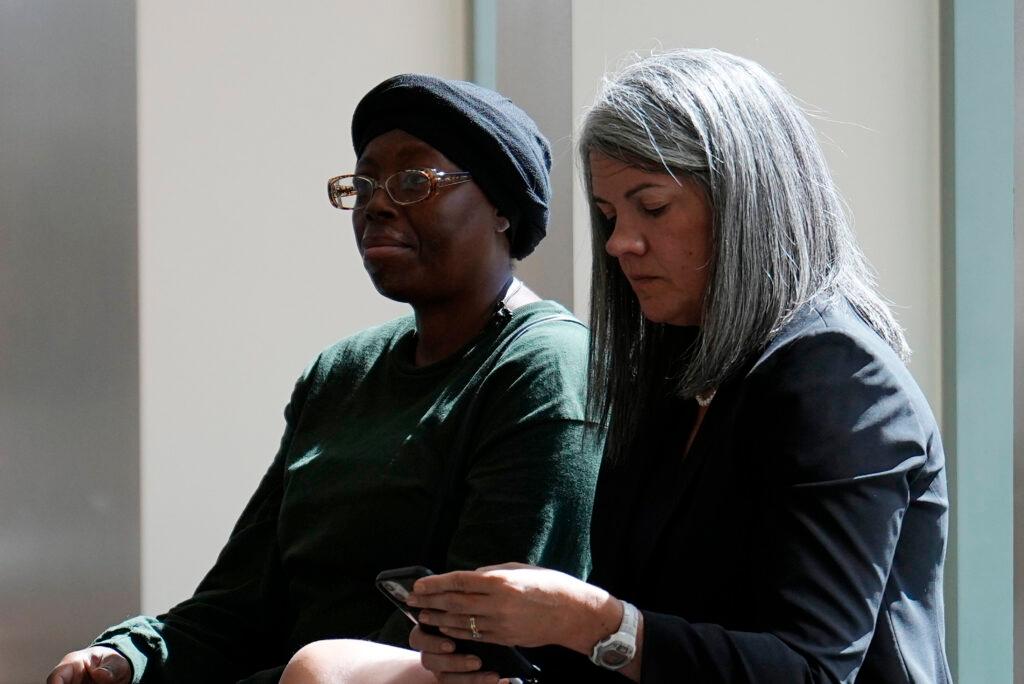
Sept. 15 - 20 — The trial of former Aurora police officers Jason Rosenblatt and Randy Roedema begins with a jury selection. The burden will be on state prosecutors to prove beyond a reasonable doubt that the two men confronted Elijah McClain, a healthy and innocent 23-year-old man, and in forcibly arresting him, were among those responsible for his death.
The jury selection process begins with a pool of 250 potential jurors. As the pool is winnowed down, two lines of questioning take shape: what ties potential jurors have to law enforcement and whether they’ve seen media coverage of the case.
In the courtroom, at least four potential jurors are asked about their interactions with law enforcement. Several have relatives who are police officers. At least one person is a Denver Police Department trainee who knows one of the officers who was on-scene the night that McClain was put in several chokeholds and administered a large dose of ketamine.
Several potential jurors are excused because of pre-existing relationships with law enforcement officers. Most of the jurors were questioned on media coverage of the trial. Several expressed that they don’t trust the media. One said the trial has weighed heavily on them since hearing it on the radio to the point they couldn’t sleep at night.
This is the first of three separate trials that could last for the rest of this year. Co-defendants Roedema and Rosenblatt are going first. The second trial is scheduled with officer Nathan Woodyard. And the third trial scheduled is for the paramedics Jeremy Cooper and Peter Cichuniec, who are co-defendants.
Jan. 20 — The three former Aurora police officers and two paramedics criminally charged in the death of Elijah McClain all pleaded not guilty. Trials were set for later this year.
Jan. 19 — Adams County District Judge Mark Douglas Warner ordered that three former police officers and two paramedics criminally charged in the death of Elijah McClain will have three separate trials — setting up a fight among the five defendants about who exactly caused the young man’s death in 2019.
Warner ordered the two paramedics, Peter Cichuniec and Jeremy Cooper, to be tried together. Suspended officer Nathan Woodyard, who was the first on the scene with McClain and performed the second of two carotid choke holds, will be tried by himself. And the other two officers, Randy Roedema and Jason Rosenblatt, will be tried together. Rosenblatt attempted to perform a carotid choke hold, but it didn't make McClain pass out, as the former officer intended.
2022
Nov. 4 — Defense attorneys asked an Adams County judge to the delay an arraignment another two months to prepare for a “final” arraignment in January. They said they were still receiving discovery from the prosecution, including internal investigation reports and notes taken by the defendants at the time, and they needed time to prepare.
Prosecutors from the state attorney general’s office told Judge Priscilla Loew that McClain’s mother, Sheneen, objected to any more delays in the trial. But they didn’t formally object to moving the final arraignment to Jan. 20.
Sept. 23 — Elijah McClain's amended autopsy is released to the public, showing a new cause of death: ketamine administration after forcible restraint. His manner of death, however, remains undetermined, which contradicts the state's case against the three Aurora police officers and two paramedics who were involved in the deadly 2019 arrest. The new report goes on to take blame off the involved police officers, who are facing charges that include criminally negligent homicide and manslaughter, by saying that the chokeholds they used on McClain would not have caused long-lasting injuries.
Sept. 2 — CPR News first reports that McClain's 2019 autopsy report has been altered following grand jury testimony, potentially strengthening prosecution of the officers and paramedics involved in the arrest. CPR filed suit against the Adams County coroner to obtain the amended autopsy report.
Aug. 12 — The three Aurora police officers and two paramedics bumped their plans to plea in the cases against them alleging roles in the death of Elijah McClain to November. Lawyers from both sides agreed to a secondary arraignment date for Nov. 4.
2021
Nov. 19 — Aurora agreed to pay the family of Elijah McClain $15 million. The money is the largest known settlement for police violence in state history.
Nov. 16 — Aurora and the Attorney General announced they had reached a deal on a consent decree to make the reforms recommended by the patterns and practices report and would send it before the city council shortly.
Oct. 19 — McClain’s parents, Sheneen McClain and Lawayne Mosley, reached a settlement “in principle” with the city of Aurora over her civil rights lawsuit. The size and specific conditions of the settlement were not disclosed.
Sept. 15 — The ‘patterns and practices’ investigation by Phil Weiser’s office revealed The Aurora Police Department and Aurora Fire and Rescue repeatedly violated state and federal law with racist policing, illegal use of excessive force and inappropriate administration of ketamine.
The 118-page report was the result of a 14-month investigation, and will require Aurora Police to enter into a consent decree to make major changes across the organization, including improving its policies, training, recordkeeping and hiring, with the goal of overhauling its entire culture.
It will also require the APD to instate clearer use-of-force policies and ensure officers document every stop they make, as required by state law. State officials are also going to require Aurora Fire overhaul when and how they use ketamine in emergency situations, including how they evaluate whether it’s necessary and setting stricter rules around dosages.
Sept. 1 — Colorado Attorney General Phil Weiser announced that a grand jury filed a total of 32 criminal charges against three Aurora Police officers — Nathan Woodyard and Randy Roedema, former officer Jason Rosenblatt — and two paramedics — Jeremy Cooper and Peter Cichuniec — including manslaughter and criminally negligent homicide, for their role in the deadly detention of Elijah McClain in 2019.
All five turned themselves into the Glendale Police Department the same day the indictment was announced. They were each released after posting $10,000 bonds.
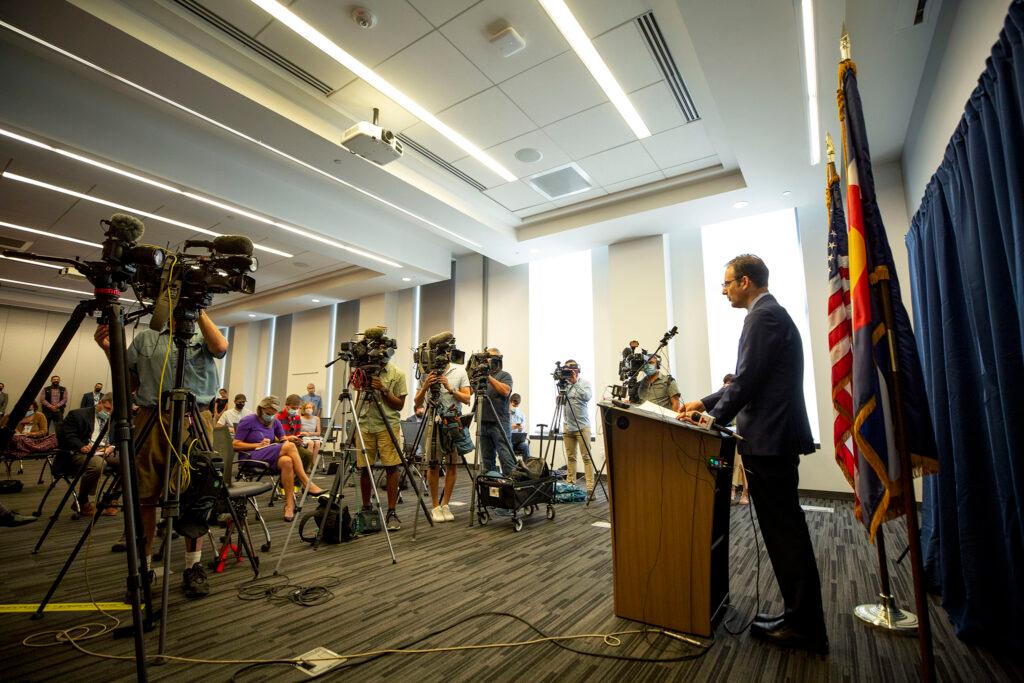
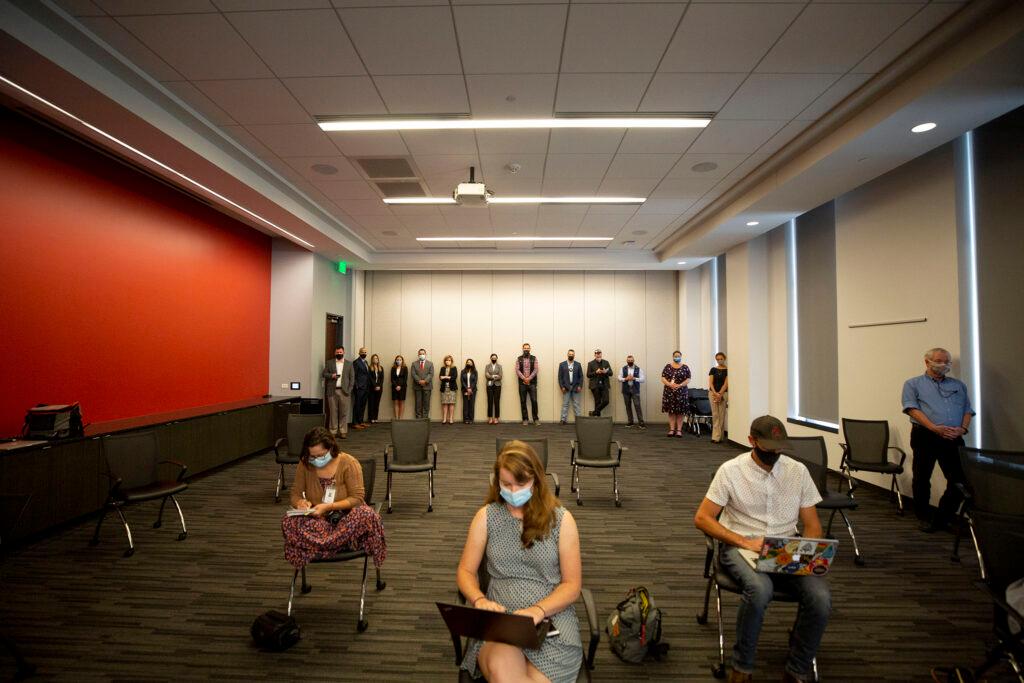
Aug. 16 — An independent watchdog group presented a report at Aurora City Council that said Aurora Police disproportionately use force on Black men and a small number of officers are involved in a large percentage of use of force incidents.
Although 328 officers used some level of force on the job in 2020, 27 of them — about 3.5 percent of officers overall — were responsible for nearly 24 percent of all use-of-force incidents.
The group presented more than 60 recommendations in the several-hundred-page report including improving hiring practices and prioritizing diversity, clarifying use-of-force rules, increasing training to prevent bias in policing, requiring better data collection and analysis and making better use of officers trained to deal with people in mental health crises.
July 6 — Gov. Jared Polis signed legislation that puts guardrails around ketamine use. The 12-page bill says the powerful sedative can only be administered under the discretion of medical professionals — not law enforcement.
The legislation also outlines specific situations in which ketamine may be administered, sets forth new regulations for monitoring patients and specifically prohibits the use of ketamine for “excited delirium,” a broad description applied to anyone aggressive, agitated, paranoid or disoriented.
Feb. 22 — A 157-page, independent investigation commissioned by the City of Aurora found crucial missteps in the Aurora Police Department’s encounter with Elijah McClain, including the initial pat-down and use of a carotid hold once police pushed him to the ground.
The report made several suggestions, including that Aurora Police should review its use of force policy, provide enough guidance to officers on how to avoid using force, and make it clear that de-escalation is required in every encounter when possible.
2020
Dec. 2 — The city of Aurora filed a motion in federal court to dismiss a wrongful death lawsuit filed by the McClain family. A city spokesman alleged that the lawsuit failed to support its claim that Aurora was liable in McClain’s death when it came to proper training and supervision of the police department and its paramedics.
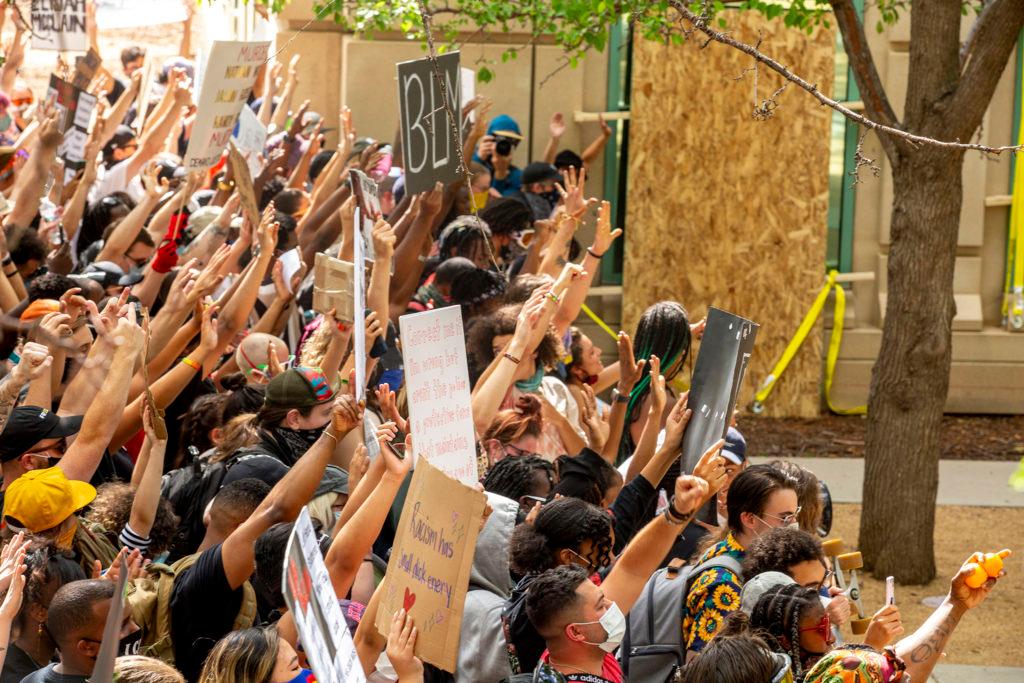
Sept. 14 — The Aurora City Council unanimously voted to temporarily ban city paramedics from using ketamine until the city’s independent investigation of the events leading up to McClain’s death was completed. The resolution was introduced by Curtis Gardner, an at-large city councilman.
Aug. 27 — Aurora City Council banned local police from using carotid holds, a type of chokehold that puts pressure on either side of the subject’s windpipe. The council’s decision codified a policy change enacted by police chief Vanessa Wilson, who banned the holds in June while serving as interim chief.
Aug. 23 — The Colorado Department of Public Health and Environment announced it planned to review the use of ketamine by emergency medical providers. However, the review was paused on January 15, 2021 so the CDPHE could "reassess the scope, in deference to other investigations." Shortly thereafter, on January 18, 2021, the CDPHE resumed the review to focus not on individual cases of ketamine problems, but on the authorizations the state has given to emergency medical providers to administer ketamine in pre-hospital settings.
Aug. 22 — Members of Breonna Taylor’s family met with Elijah McClain’s mother and other relatives at Brother Jeff’s Cultural Center in Denver’s Five Points neighborhood. Later that evening, the families and their supporters gathered at the State Capitol to read the names of Elijah, Breonna and many others killed by police.
Aug. 11 — State Attorney General Phil Weiser said that his office has, for the last several weeks, been probing “patterns and practices” at the Aurora Police Department to see whether officers have deprived individuals of their constitutional rights under state or federal law. This investigation is separate from the ongoing investigation Weiser’s office is conducting into the death of Elijah McClain and was made possible by new powers granted to the Attorney General under the police reform law.
On the same day, the family of Elijah McClain filed a lawsuit in federal court against the city of Aurora, several police officers and paramedics who they allege are responsible for McClain’s death.
Just hours after Elijah McClain’s family filed their lawsuit, the city of Aurora announced that it would conduct a comprehensive review of its police department.
Aug. 3 — Aurora City Council voted 9-1 to appoint interim Aurora police chief Vanessa Wilson as the city’s next police chief, the first woman to assume that role in the city’s history. Wilson said in a statement she was honored, humbled and energized by the decision.
Aug. 1 — McClain’s death continued to gain national attention; the Denver Nuggets’ coach Michael Malone wore a shirt with the slogan “Justice for Elijah McClain" during a game in Florida. A month later, tennis champion Naomi Osaka donned a mask with his name on it at the US Open in New York.
July 25 — A couple of hours into a protest that began at Aurora Police Headquarters, demonstrators marched onto I-225, blocking traffic. A driver in a Jeep tried to plow into them.
A protester fired a gun and struck another protester, who was sent to the hospital in stable condition. Six demonstrators faced felony charges for their involvement in this demonstration and the one on July 3rd, though the charges were eventually either dismissed or dropped after the completion of community service.
The man who fired shots during the protest was charged with attempted first-degree murder. No charges were brought against the driver of the Jeep.
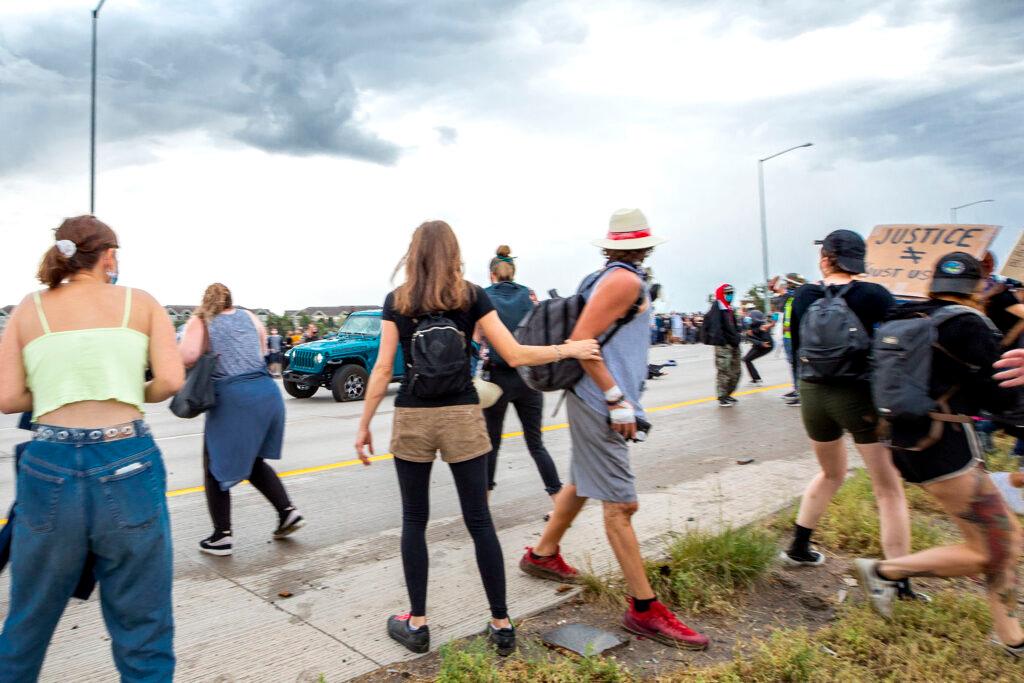
July 20 — Aurora City Council approved an independent investigation into Elijah McClain’s death to be led by Jonathan Smith, a former Justice Department attorney who led a civil investigation of the Ferguson, Missouri, police department after the death of Michael Brown.
This is the second time the Aurora City Council started an investigation into McClain’s death. The first person it hired, in the spring, was a former police officer, which sparked criticism that the investigation wouldn’t be independent.
July 3 — Protesters surrounded Aurora’s District One police station vowing to remain until all the officers involved in Elijah McClain’s death were fired. They dispersed later in the night.
Two officers involved in the deadly encounter with Elijah McClain, Nathan Woodyard and Randy Roedema, remain on the force.
July 2 — Interim Aurora Police Chief, Vanessa Wilson, announced that she fired three officers involved with taking and distributing a photo showing officers mimicking a carotid control hold next to a memorial set up close to where police stopped him. A fourth officer involved in the incident resigned.
One of the officers fired was Jason Rosenblatt, who was part of the group that apprehended McClain. While Rosenblatt isn’t in the photo, it was texted to him and he replied, “haha.”
"He is being fired for his...utter lack of ability to do the right thing here. And his ability to say 'haha' when he was involved in the incident with Elijah McClain is reprehensible," Wilson said.
One week later, all three police officers appealed their firing.
June 30 — The FBI, Colorado U.S. Attorney’s Office and the Department of Justice Civil Rights Division released a statement that revealed they had been investigating Aurora’s handling of McClain’s death for a potential civil rights violation ever since it happened in 2019. The statement was announced at the same time as a meeting held by Aurora city council members and mayor Mike Coffman, who were answering questions about policing at recent protests.
Federal officers declined to elaborate on any details, noting the standard practice is that they don’t announce the existence of ongoing investigations.
June 27 — A planned day of vigils and protests in Aurora for McClain began with speakers, music, a march down I-225 and a rally in front of Aurora’s Municipal Center. The day ended with a police barricade and officers in riot gear.
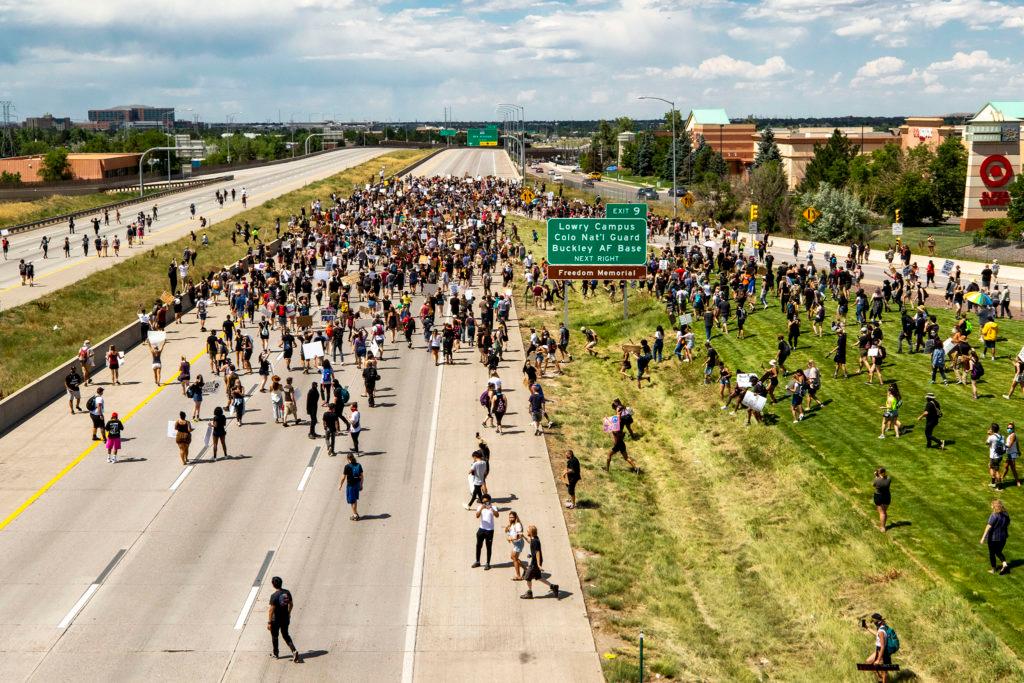
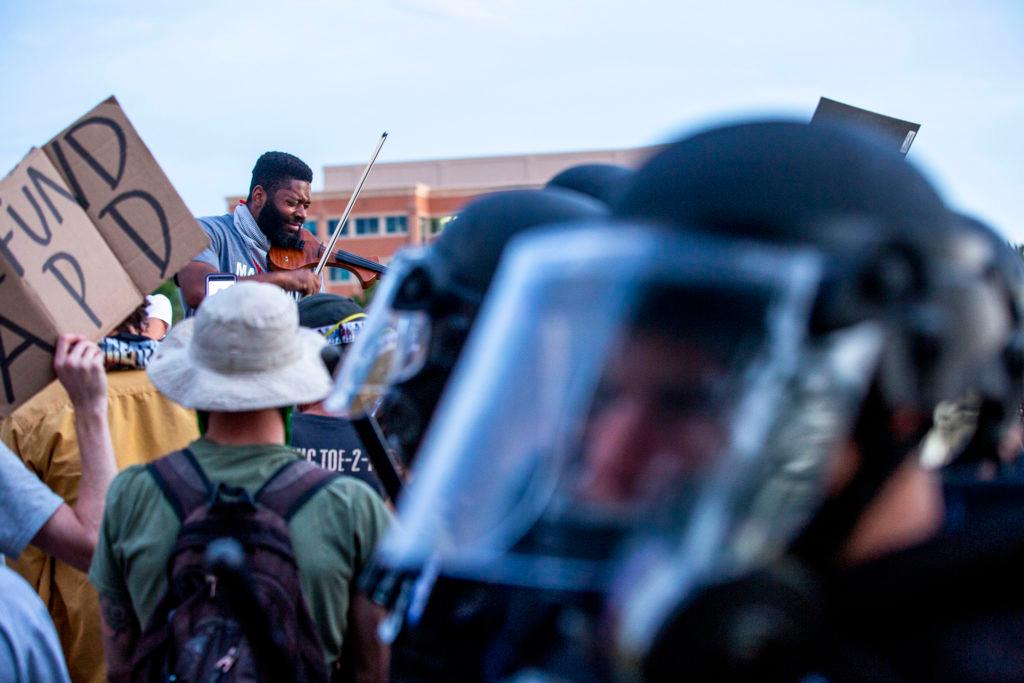
June 25 — Gov. Jared Polis signed an Executive Order to appoint Colorado Attorney General Phil Weiser as a special prosecutor to investigate. The order directed Weiser to investigate and, if the facts supported it, “criminally prosecute any individuals whose actions caused the death of Elijah McClain.”
June 24 — The Aurora Sentinel reported that Aurora officials were flooded with requests to further examine the death of Elijah McClain. State Rep. Dafna Michaelson Jenet, who represents the House district where McClain lived, said she received more than 83,000 emails about the case in three weeks.
June 19 — After weeks of daily protests at the Colorado State Capitol against police brutality and racism following George Floyd's murder, Gov. Jared Polis signed into law the sweeping police reform bill.
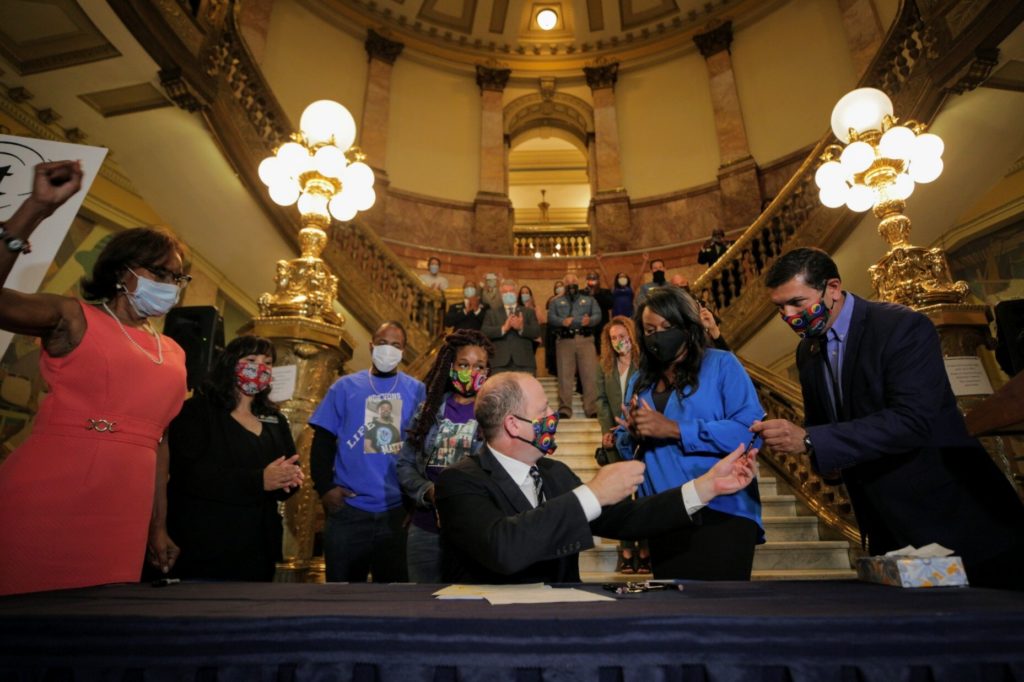
June 3 — Colorado lawmakers introduced SB21-217, a wide-ranging police accountability measure that would ban the use of carotid chokeholds by police. It also included measures that would address body camera use and the release of footage, increase transparency in law enforcement reporting and put new limits on police action during protests. The bill was shaped, in part, by the circumstances of McClain’s death.
May 25 — George Floyd, a 46-year-old Black man was killed in Minneapolis, Minnesota while in police custody. He was arrested on suspicion of using a counterfeit $20 bill at a convenience store.
During the arrest, Derek Chauvin, a white police officer, knelt on Floyd’s neck for more than nine minutes while Floyd was handcuffed and lying face down. Two other officers assisted Chauvin, and a third officer prevented bystanders from coming to Floyd’s aid.
Feb. 10 — The Aurora City Council approved a resolution to establish a Community Police Task Force “to evaluate, discuss and develop recommendations to improve effective and transparent communication between the Aurora Police Department and the community, including a potential resident-involved/resident-based review process of critical police incidents, operations, practices and procedures.”
Jan. 1 — Vanessa Wilson, a veteran with the force since 1996, was appointed interim Aurora Chief of Police, becoming the first woman ever appointed to the job. Deputy Chief Paul O’Keefe was expected to step in as interim chief, but instead withdrew from consideration and retired. Wilson said she planned on applying for the permanent police chief job.
2019
Dec. 30 — Aurora Chief of Police Nick Metz retired after four-and-a-half years as chief.
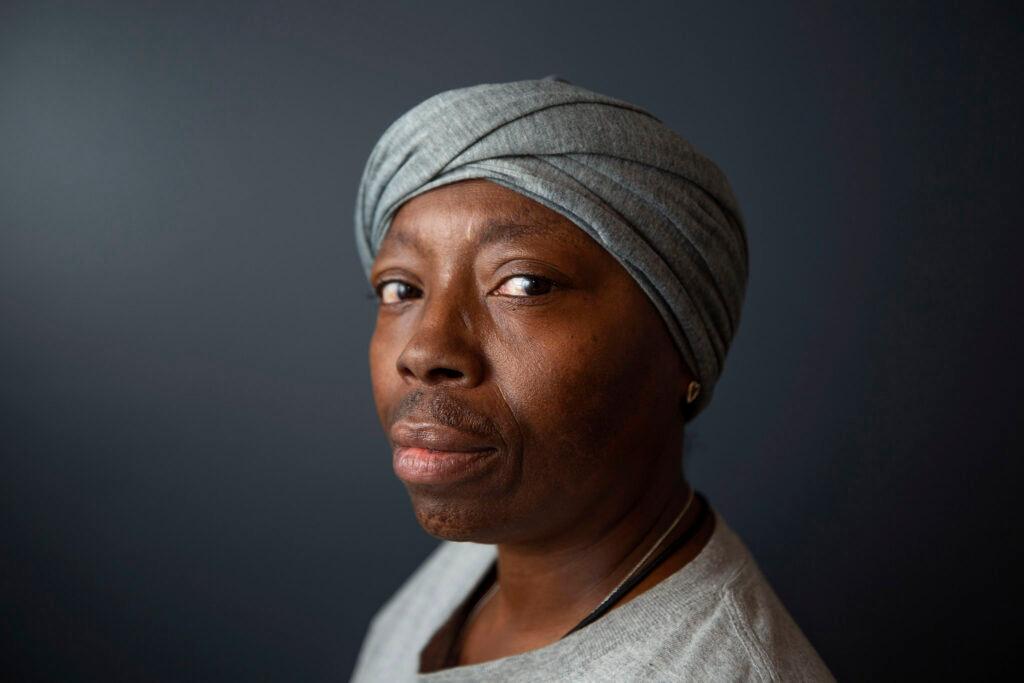
Nov. 22 — Adams County District Attorney Dave Young releases his decision clearing the officers involved in the case — Nathan Woodyard, Jason Rosenblatt and Randy Roedema — of any criminal wrongdoing. All of them were put back on the job.
“The evidence does not support the prosecution of a homicide,” Young wrote in his decision letter to Aurora Police Chief Nick Metz. Young also wrote that it was not his role to “second guess the actions of the involved officers to determine if they could have reacted to this situation in a different manner.”
That same day, the Aurora Police Department released the footage from the officers’ body-worn cameras. It showed that shortly after the officers forced McClain to the ground, one shouted that he was trying to take one of their guns. However, the cameras did not capture the entire interaction as officers say they were knocked off their uniforms during the struggle.
Nov. 7 — In his final autopsy report, Dr. Cina declared there was no way to determine whether police or paramedics played a role in McClain’s death. This effectively crippled any effort to find criminal fault with how they responded to the initial 911 call.
Before Dr. Cina signed his final autopsy report, he received copies of the Aurora police reports on their encounter with McClain and video from the incident. None of this altered his decision to rule that both what caused McClain’s death and precisely what he died from as undetermined.
It’s rare in Colorado to have both an undetermined manner and cause of death. In 2019, only 53 out of 40,100 deaths had both an undetermined cause and manner, according to the Colorado Department of Public Health and the Environment.
Both Dr. Cina and Broncucia-Jordan declined requests for interviews with CPR news.
Oct. 16 — Coroner Broncucia-Jordan met with Aurora detectives. Those involved in that meeting either declined to comment on what was discussed or declined to respond to questions from CPR News.
Oct. 1 — Dr. Cina sent a draft of the autopsy report to Coroner Broncucia-Jordan, writing that the report needed “witness statements, police report, and any video of the incident. I know APD doesn’t like long narrative on homicides, but it appears appropriate here. may be undetermined.”
According to a national coroners group, it is best practice to seek a second medical opinion to avoid an undetermined ruling in an autopsy. However, a second medical opinion was never sought by Dr. Cina or by Coroner Broncucia-Jordan, who is not a doctor.
Sept. 3 — Dr. Stephen Cina, a pathologist and independent contractor, who was paid $324,000 for conducting 342 autopsies in Adams County that year, performed the autopsy of Elijah McClain.
A CPR News investigation found that he concluded that the manner of death “may be undetermined” before he had reviewed complete police reports, witness statements or video capturing the violent confrontation between Aurora Police and McClain.
Aurora police investigators were present at the autopsy, which was later criticized by Democratic State Rep. Leslie Herod.
Aug. 30 — Elijah McClain dies three days after he was declared brain dead, at age 23.
Aug. 29 — Sheneen McClain, Elijah’s mother, set up a GoFundMe page to raise money for burial costs. She was not able to afford a funeral, and ended up cremating her son instead.
Aug. 27 — After four days in a coma, McClain was declared brain dead by doctors and taken off life support.

Aug. 24 — 23-year-old massage therapist Elijah McClain was walking back from an Aurora convenience store when someone called the police and said he was allegedly acting suspiciously. McClain, who had a blood circulation disorder, was wearing a ski mask and was dressed warmly.
Aurora Police officers Nathan Woodyard, Jason Rosenblatt and Randy Roedema arrived on the scene and began questioning McClain. The exchange quickly escalated when officers said McClain failed to follow commands.
McClain told the officers that he didn’t have a gun and that he preferred personal space, according to a tape of the incident.
The officers eventually used carotid chokeholds on McClain twice as they attempted to subdue him. McClain briefly passed out and vomited a couple of times. Such holds have since been banned statewide.
When paramedics arrived at the scene, they diagnosed McClain with “excited delirium” — meaning they thought he was exhibiting “superhuman” strength — without talking to him or physically touching him. They injected McClain with 500 mg of ketamine — a dose that would have been slightly too much for a 200-pound person. McClain weighed 143 pounds.
Shortly after McClain was loaded into the ambulance, the paramedics discovered that he had no pulse and was not breathing. He went into cardiac arrest while being transported to the hospital.
Francie Swidler, Megan Verlee, Allison Sherry and Sarah Bures contributed to this story.








